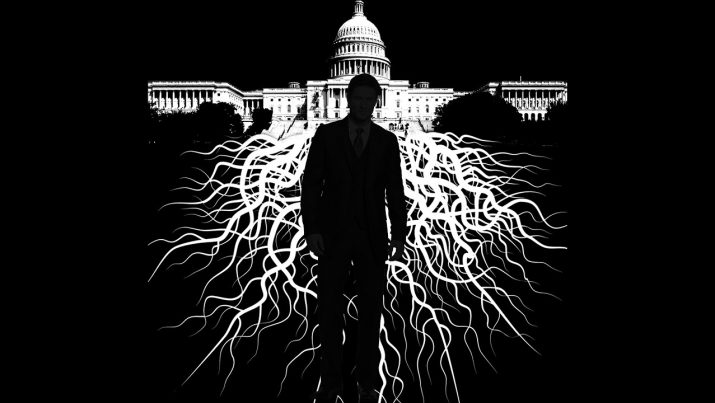
The seditious, treasonous and pathological conduct of the left
Wednesday, July 11, 2018 by News Editors
http://www.fascism.news/2018-07-11-the-seditious-treasonous-and-pathological-conduct-of-the-left.html

Modern liberalism: made in much the same way as a sausage — it’s a blend of fascist, Communist, and socialist ideologies from twentieth century Europe, with a pinch of Nazism, all ground together, yet retaining the flavor of its various parts. —Michael Savage
(Article by Kelleigh Nelson republished from NewsWithViews.com)
Congratulations to Maxine Waters, whose crazy rants have made her, together with Nancy Pelosi, the unhinged FACE of the Democrat Party. Together, they will Make America Weak Again! But have no fear, America is now stronger than ever before, and I’m not going anywhere! —President Donald J. Trump
Justice Anthony Kennedy was nominated to the Supreme Court in 1987 by President Ronald Reagan. On March 3, 1975, upon Reagan’s recommendation President Gerald Ford appointed Kennedy to the United States Court of Appeals for the Ninth Circuit. Conservatives’ views on Kennedy stem from his eventual rethinking of positions on abortion, religion, and the death penalty (which Kennedy believes should not be applied to juveniles or the mentally challenged). Kennedy has sided with gay rights and abortion advocates on many occasions. When Justice Kennedy announced his retirement on 27 June 2018 the left had another psychotic meltdown knowing Donald Trump would choose the replacement.
Sedition and Treason
Sedition is not a word we hear very often. So, what is it? Sedition is legally defined as ”the criminal act of revolting against an established authority, usually in the form of treason or defamation of a government.” In other words, if you are conspiring or plotting to overthrow by violent force, harm in any way, or more specifically, kill any authority figure in government, you have committed sedition.
Sedition not only covers a person’s actions but also any words or writings in print that may incite, encourage or promote the overthrowing of a government; it’s seditious libel.
The U.S. government has attempted on several occasions to regulate speech in wartime, beginning with the Alien and Sedition Acts of 1798 which had four parts, three of which expired in 1801.
The Alien Enemies Act remained in effect, was revised and codified in 1918 for use in World War I. It was also used by the government to identify and imprison dangerous enemy aliens from Germany, Japan, and Italy in World War II. The Alien Enemies Act has never been repealed.
First Amendment Rights
Although sedition laws are still on the books, the Warren Court effectively neutralized them on Red Monday, 1957. Yates v. United States, 354 U.S. 298 (1957), was a case decided by the Supreme Court of the United States that held that the First Amendment protected radical and reactionary speech, unless it posed a “clear and present danger.” Link H/T to John and Andy Schlafly.
First amendment rights give us the ability to speak against what we disagree with regarding the government. For this reason, sedition laws are rarely enforced. Sedition used to be viewed as treason, or even an act of domestic terrorism, but it’s now viewed by many as American’s First Amendment rights.
Of the five rights all Americans are afforded within the First Amendment, the two that protect against sedition are freedom of speech, and freedom of the press. Americans have the right to a dissenting opinion, and the right to write about it and publish it if we choose. But prior to 1964, libel by the press against a public figure could get them sued.
That all changed with the 1964 Supreme Court decision, NYTs Co. v Sullivan which was decided by the liberal Warren court in a 9-0 decision. (Chief Justice Earl Warren was appointed by Republican President Dwight Eisenhower. Another liberal followed the Warren Court, Chief Justice Warren Burger, appointed by Republican President Richard Nixon.) This decision changed the rules involving libel that had previously been the province of state law and state courts and stated that media could lie about public figures with impunity as it was a first amendment right. A public official could recover in a libel action only if and when a court found that the libelous statement about the official was made with “actual malice”—that is, with knowledge that it was false or with reckless disregard of whether it was false or not. This is their tortured interpretation.
The 1964 SCOTUS decision, which dealt with a civil libel action, changed the dynamics of debate in our society into the deceptive and dishonest attacks on public figures we see daily by society’s socialists.
The definition of sedition describes what has happened to Donald J. Trump since he and his wife came down that escalator to announce his candidacy for President on 16 June 15.
What we cannot do as Americans is incite violence towards the President. We cannot make threats on his life or attempt to encourage others to forcibly remove him from office; that is, in fact, illegal, yet it continues with no consequences for the perpetrators.
In Leonard Levy’s book, Legacy of Suppression, he describes how previous restraint of the press was the rule rather than the exception and that punishment was frequent and relatively sure for the orator who voiced criticism of courts or legislatures. It is a book wholly devoted to the subject of seditious libel. The 1964 Warren Court decision swung the pendulum too far to the left allowing media to lie through their teeth with impunity.
Read more at: NewsWithViews.com
Tagged Under: Tags: civil unrest, civil war, Clinton, Collapse, deep state, democrats, First Amendment, government, left, lies, politics, propaganda, Second Amendment, Trump





